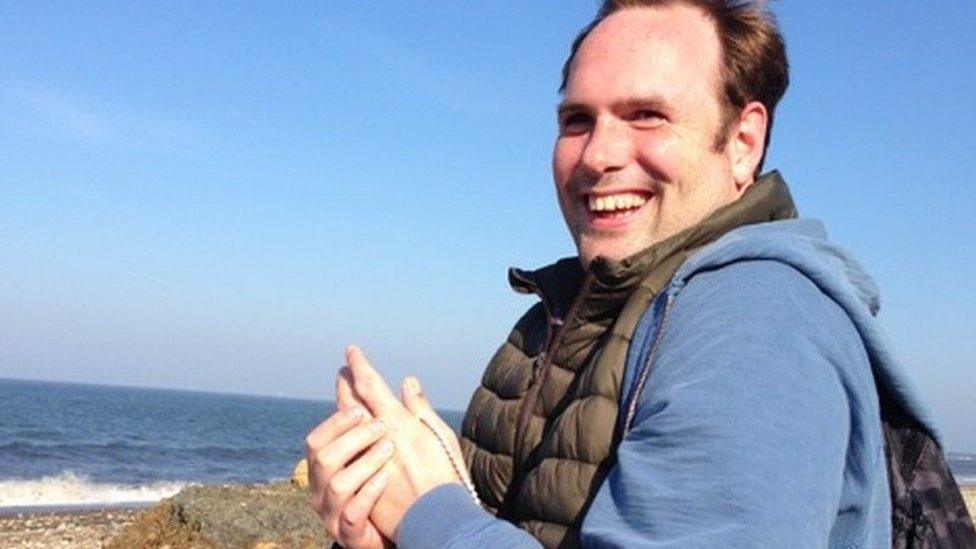Learning disabilities 'transformation' call
- Published
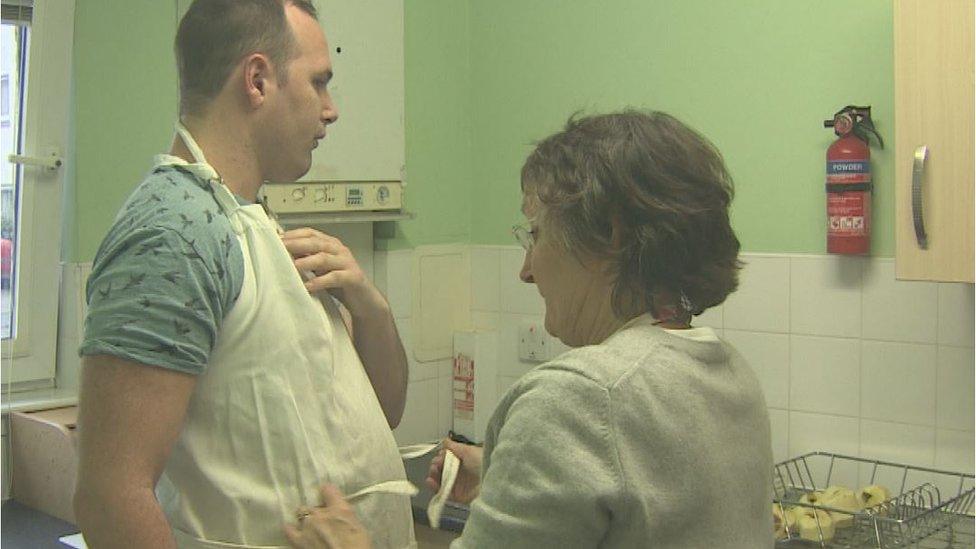
People with learning disabilities should be supported to live in their own homes, experts say
Too many adults and children with learning disabilities and complex needs are being forced to live hundreds of miles from family, a new report says.
The Scottish government report, seen by the BBC, said a "transformational" change was needed to address concerns.
The report's author, Dr Anne MacDonald, said people with learning disabilities should have the right to the same range of housing options as everyone else.
Ministers said they would look at Dr MacDonald's recommendations.
For decades, government policy has been that people with learning disabilities should be able to live in their own homes, as independently as possible.
The Scottish government says they should be supported to lead full, healthy and independent lives in their communities.

Dr Anne MacDonald has studied the issue for the Scottish government
Dr MacDonald, whose report will be published on Thursday, told BBC Scotland there were a "sizeable" number of people who were either placed out of their local area or stuck in hospital.
She said she had identified 109 people who should be returned to their home area "as a priority".
Dr MacDonald said: "This is a group who can be quite challenging to support. It is people with learning difficulties, complex needs and challenging behaviours.
"It can be difficult to provide support for this group and therefore it needs to be well planned."
She said the report found that many people were moved out of their home area or into hospital during a period of crisis.
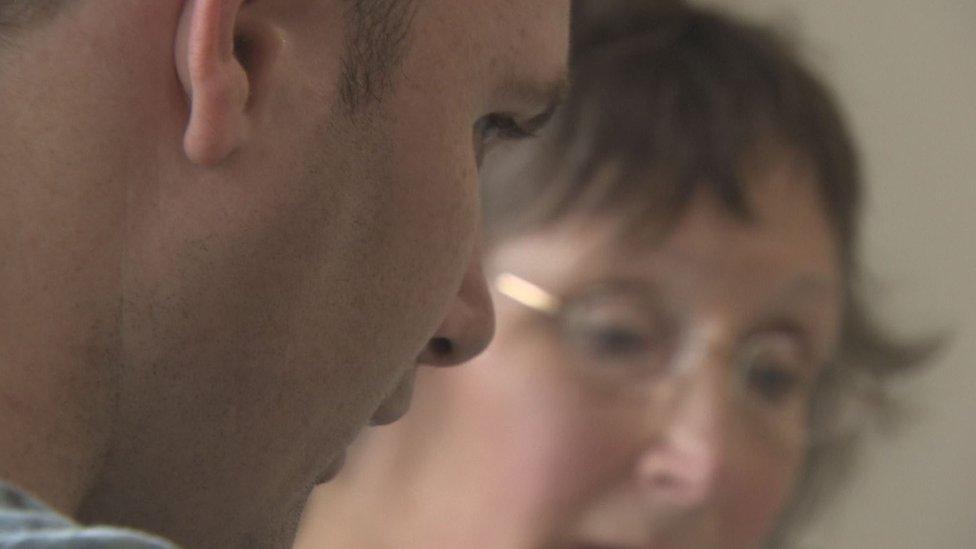
"It is because something has become very difficult and it is meant to be a short-term solution," she said.
However, she said better planning and support could ensure the crisis either did not arise or could be better managed.
Dr Macdonald said challenging behaviour was not innate and was an "expression of their unmet need".
She said the key to avoiding crisis was suitable accommodation, good staff, better planning and positive behavioural support.
Mental Health Minister Clare Haughey said: "We are committed to considering how best to take forward work based on Dr Macdonald's findings, including discussing this with Health and Social Care Partnerships in relation to the commissioning of local services, developing community services, transition planning and specialist skills."

Report findings
705 people with learning difficulties were in placements outside their local area on 31 January 2017 (one large health and social care partnership did not take part so the actual figure will be higher)
45% had been out-of-area for more than 10 years
23% had been out-of-area for between five and 10 years
79 were placed outside Scotland (in England and Wales)
453 were identified as out-of-area "not through choice"
109 were considered a priority for return to their local area
77% were placed out-of-area due to lack of specialist services locally
Another 11% due to local specialist services having no capacity

End of long journey
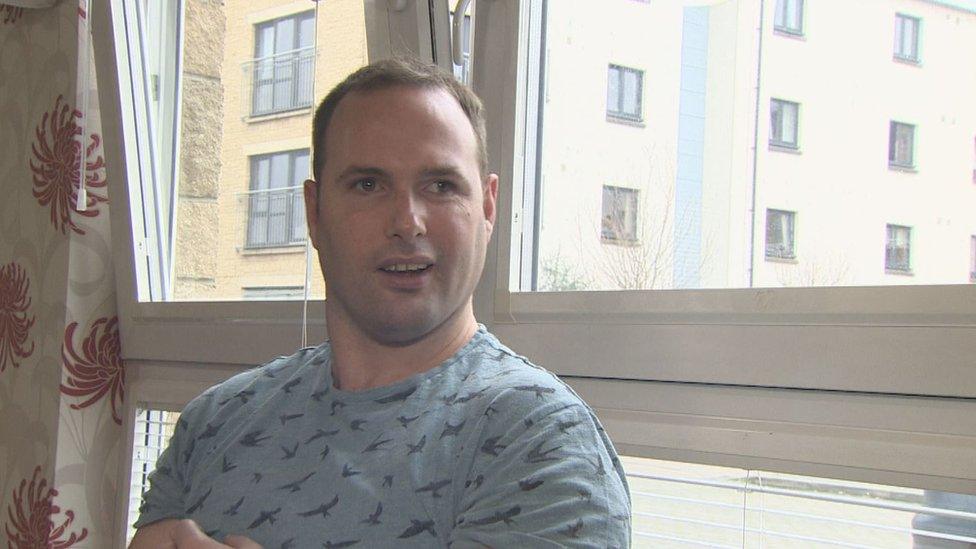
Louis was living in a care unit in Hartlepool before he moved to a new flat nearer his home
For Louis Sainsbury and his mum Kate doing simple tasks like cooking together in his own flat is a novelty.
Six weeks ago when BBC Scotland first covered his story he was living in a care unit in Hartlepool. Now he's living in a flat of his own.
Louis contracted meningitis when he was a few days old and his brain was damaged.
As a result he has learning disabilities and his communication is impaired.
He went to a residential school and went home at weekends but at the end of school he struggled and ended up in a hospital inpatient unit.
More recently he had to take a place in a care home four hours drive from his mother's home in Perthshire.
Kate Sainsbury said it was wonderful to have him back close to her.
"It is the end of a long journey," she said.
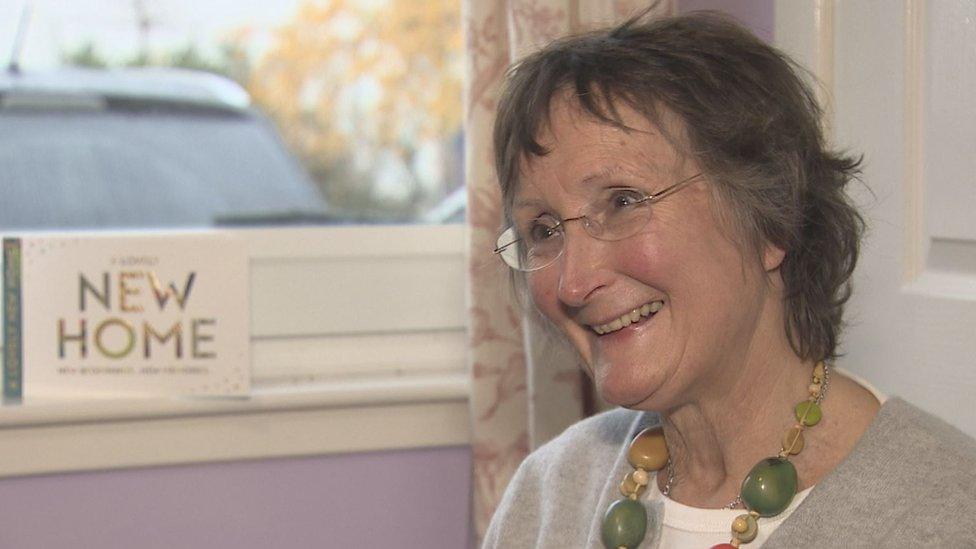
Kate Sainsbury said it was a new opportunity for her son
"We have been through really dark places full of despair because he was 240 miles away and now he is 24 miles away.
"And it is the start of a new opportunity for Louis to live in this lovely flat."
Kate added: "If Louis had a physical condition - if he had cancer - and you said to me 'does it seem right that Louis has the right treatment?' we would be saying, 'of course, it is right that he has the right treatment for cancer or a physical ailment'
"Whereas with social care is so often not recognised that it is important to have expert, consistent care in the life of a young man like Louis."

New 15-bed care home
Many experts take the view that everyone, regardless of the complexity of their needs, should be able to live in their own home with support.
However in Glasgow, the Integration Joint Board is planning a new 15-bed, long-term care home.
Critics say this runs contrary to decades of learning and policy.
Jan Savage, head of campaigns and policy at Enable, said she would not want to criticise individual boards but that in principle Scotland needed to go in the right direction in terms of how and where people with learning disabilities were housed.
She said it was possible for everyone to be supported at home rather than in institutions.
Ms Savage said: "The direction of travel has to be that as a society we agree we have to do better.
"We agree with the policy position that has been in place for the past 20 years that people have right to live in their own homes supported by the people they want to support them."
'Stepping stone'
A spokeswoman for Glasgow's Integration Joint Board said the plans were for a small, community based service for people with the most complex disabilities and who are assessed as needing complex care.
They said it would be a "stepping stone" from long-term hospital care into the community for those who were not yet ready to move into ordinary housing.
The spokeswoman said it would prevent some people having to move out of Glasgow to access a specialist care home as well as allowing people currently outside the city to move back.
"The whole ethos of the centre will be to assist people to live as independently as possible and to move on to other community-based options when they are able to do so," she said.
"However, there is a very small number of people for whom this may not be possible."
- Published2 October 2018
